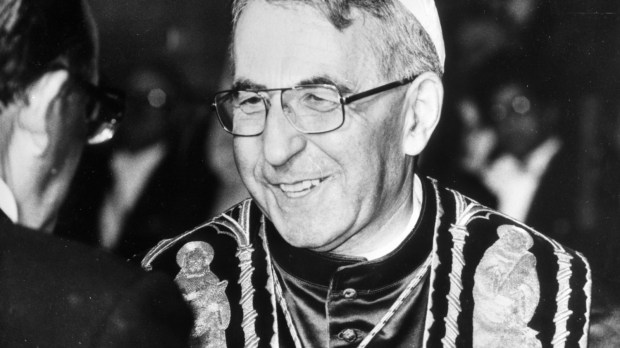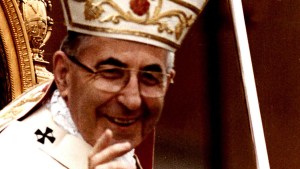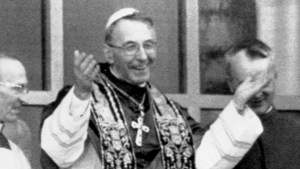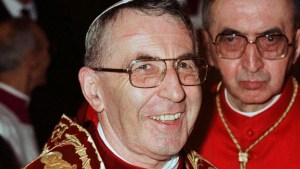“This Sunday, we will not be beatifying a ‘pope,’” said John Paul I’s biographer Stefania Falasca during a press conference at the Vatican. The Italian journalist, who is also the vice-postulator of JPI’s cause, claimed that “his pontificate is but the tip of the iceberg.”
Pope John Paul I was Successor of Peter for only 33 days before suffering a fatal heart attack in 1978. But his beatification recognizes the virtue he lived in his long service to the Church, the last 33 days of which were only a final chapter.
“He was my bishop and I have the best memories of him,” explained Cardinal Beniamino Stella, prefect emeritus of the Dicastery for the Clergy and postulator of the cause. According to Stella, JPI was “a priest who prayed, who lived in poverty and who felt good with people.”
He said his mother overheard him advising seminarians against having a bank account or a checkbook.
Holiness flourishing in the valleys of Veneto
Don Davide Fiocco, a priest of John Paul I’s original diocese, Belluno, testified to the joy experienced by the locals, who are happy to see that “holiness has flourished among its valleys.” He also presented the reliquary that will be kept in the Cathedral of Belluno after the beatification ceremony.
The relic is the draft of a reflection that John Paul I shared, in 1956, on the three theological virtues. A local artist crafted the reliquary, in which the manuscript is framed.
His last moments
His last day, Falasca explained, “was like any other.” She shared with the audience the account of the pope’s last moments. Before going to sleep, he inquired about the Mass he was to celebrate the next day, and then said his last words: “See you tomorrow, my sisters; if the Lord wills, we will celebrate Mass together.”
He was “more serene than ever,” Falasca concluded.
When asked about the conspiracy theories surrounding the death of John Paul I, Falasca recalled that all historical sources agree and make it clear the pope indeed died a natural death after having a heart attack.




